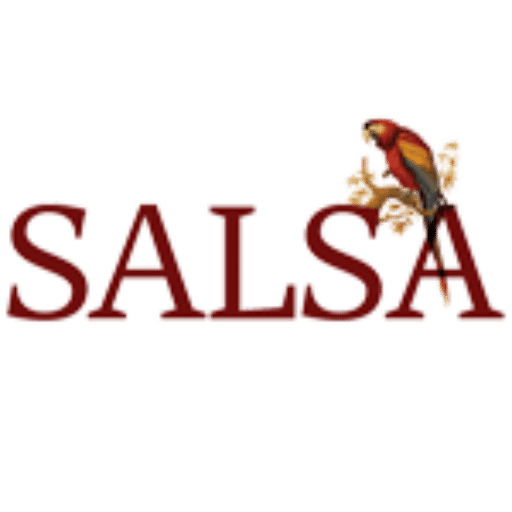
Lessons From the Yanomami, by Bruce Albert (4-27-20)
 Lessons From the Yanomami
Lessons From the Yanomami
The tragedy unfolding in the Amazon echoes what all human inhabitants of the planet are suffering
By Bruce Albert, New York Times, 27 April 2020
The Yanomami people are no strangers to fatal epidemics, and yet on April 9, many around the world were shocked to learn that Covid-19 had taken its first victim among this relatively isolated Indigenous people of the Amazon rainforest along the Brazil-Venezuela border.
Alvaney Xirixana was a 15-year-old boy from the Helepe community of the Rio Uraricoera river basin in the Brazilian state of Roraima, a region afflicted by a huge invasion of illegal gold miners. Malnourished and anemic from successive bouts of malaria, the teenager began showing characteristic respiratory symptoms in mid- March.
For 21 days he was admitted four times to a local health care facility, three times receiving treatment for other diseases and the fourth time being discharged. He was finally given a coronavirus test on April 3, when he was hospitalized yet again, this time in critical condition. He died three days later. A victim of the absurd negligence of local health services, he probably infected numerous other members of his community as well as health care workers during those three wasted weeks before he was tested. This appalling episode has raised the specter of a major new health disaster among the Yanomami people. And it is a warning for other Indigenous people of the Amazon.
Today, we are all frightened about Covid-19. What we’re feeling is perhaps not unlike what the Yanomami have historically experienced when faced with the mysterious and lethal epidemics that our world has inflicted on them.
Since their initial contacts with outsiders beginning in the 1940s, the Yanomami have lived through wave after wave of deadly viral epidemics, notably the measles and flu.
The expansion of the internal colonization frontier intensified in the 1970s when Brazil’s military dictatorship opened the Perimetral Norte highway in Yanomami territory. Since the late 1980s, Yanomami lands have suffered from regular invasions by illegal gold miners, who have unleashed epidemics of malaria, flu, tuberculosis and sexually transmitted diseases.
Over 20,000 garimperos, or illegal miners, are currently devastating Yanomami lands. These invaders, who are nearly as numerous as the Yanomami themselves (current population 26,780), are most likely responsible for introducing the coronavirus to the region. Even amid the pandemic, illegal mining operations have continued to expand. More generally, rainforest destruction throughout the Brazilian
Amazon has accelerated, with deforestation alerts for the first three months of 2020 increasing 51 percent over the same period last year.
In this context of increasing lawlessness and invasion, Indigenous people throughout Brazil face an intensified risk of infection. So far, over 80 Indigenous people in Brazil have been found to have Covid-19, and seven have died — Mr. Xirixana, three other members of different ethnic groups in the Amazon interior, as well as three residents of the city of Manaus, including an Indigenous health care worker. Yet given the precarious state of Indigenous health care, there are most likely many more cases.
The disease appears to be spreading quickly in poor Indigenous ghettos on the outskirts of large Amazonian cities like Manaus and Belém, which were already overburdened by an influx of Venezuelan Indigenous refugees. The impact of the coronavirus pandemic on such urban Indigenous people has been overlooked in the general flood of data.
The roughly 900,000 Indigenous people are among the most vulnerable to this epidemic in Brazil. Abandoned by weak, underfunded national institutions, some Indigenous communities have taken it upon themselves to close off their villages or isolate themselves in town as best they can, suspending social and political activities and distributing prevention materials in their native languages.
The Yanomami, one of the largest and most well-known Indigenous communities of the Amazon, continue to suffer from inadequate health care and a persistent climate of indifference, negligence and lawlessness concerning the invasion of their lands by miners.
The press, the global scientific community and Indigenous peoples themselves must continue to expose such negligence and denounce violations of constitutionally guaranteed rights. And yet given the chaotic response of President Jair Bolsonaro’s administration to the pandemic throughout Brazil, on top of its open hostility to science, Indigenous peoples and the environment, there seems little hope of significant policy change in the short term.
But something fundamental has changed: We are all united by a tragedy that is unfolding around the world.
We still know little about this disease. We do know that the origins of the new virus appear related to habitat destruction and the commercialization of wild animals. But we don’t yet have immunity, drugs or vaccines to stop it. We are reduced to confining ourselves at home with our families in the hope of evading infection. In some way it reminds me of the stories the Yanomami elders have told me about times when they fled to the forest in small groups to hide from the cannibalistic “Epidemic Spirit,” Xawarari.
However this time, we have become our own victims by loosing on ourselves the epidemiological consequences of this predatory hubris, just as Indigenous leaders like Yanomami shaman and philosopher Davi Kopenawa have been warning us for decades. In today’s hyperconnected industrial world, ecological imbalances or disease vectors that might once have affected only one corner of the planet now threaten us all.
And perhaps now, as we are all now exposed to an invisible new enemy for which we have no defenses, this harrowing experience of our shared fragility may stir global society to rethink its current course.
Bruce Albert, an anthropologist, has worked among the Yanomami in Brazil since 1975. He is a co-author with Davi Kopenawa of “The Falling Sky: Words of a Yanomami Shaman.” This essay was translated from the French by Glenn H. Shepard Jr.
https://www.nytimes.com/2020/04/27/opinion/yanomami-covid-brazil.html
